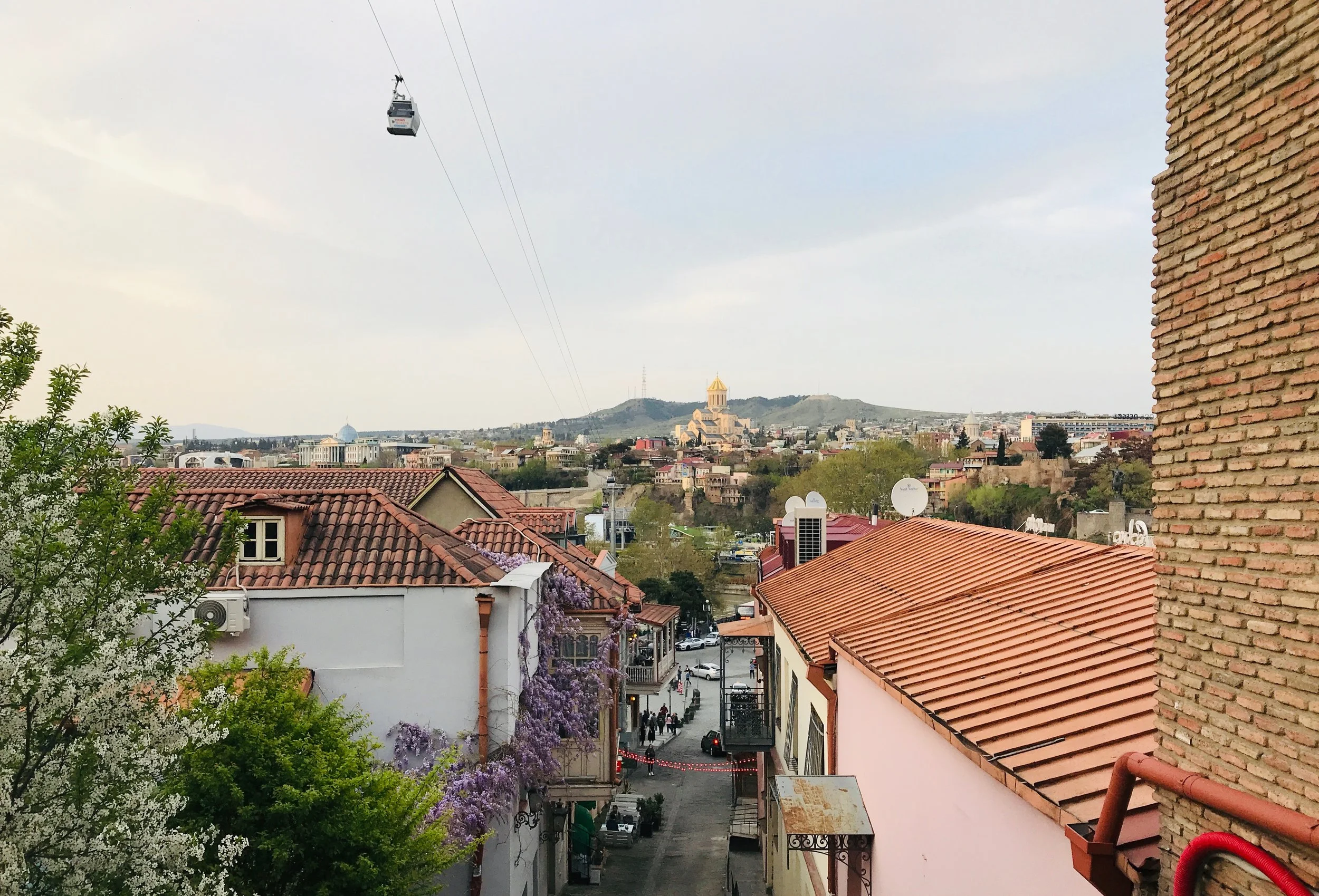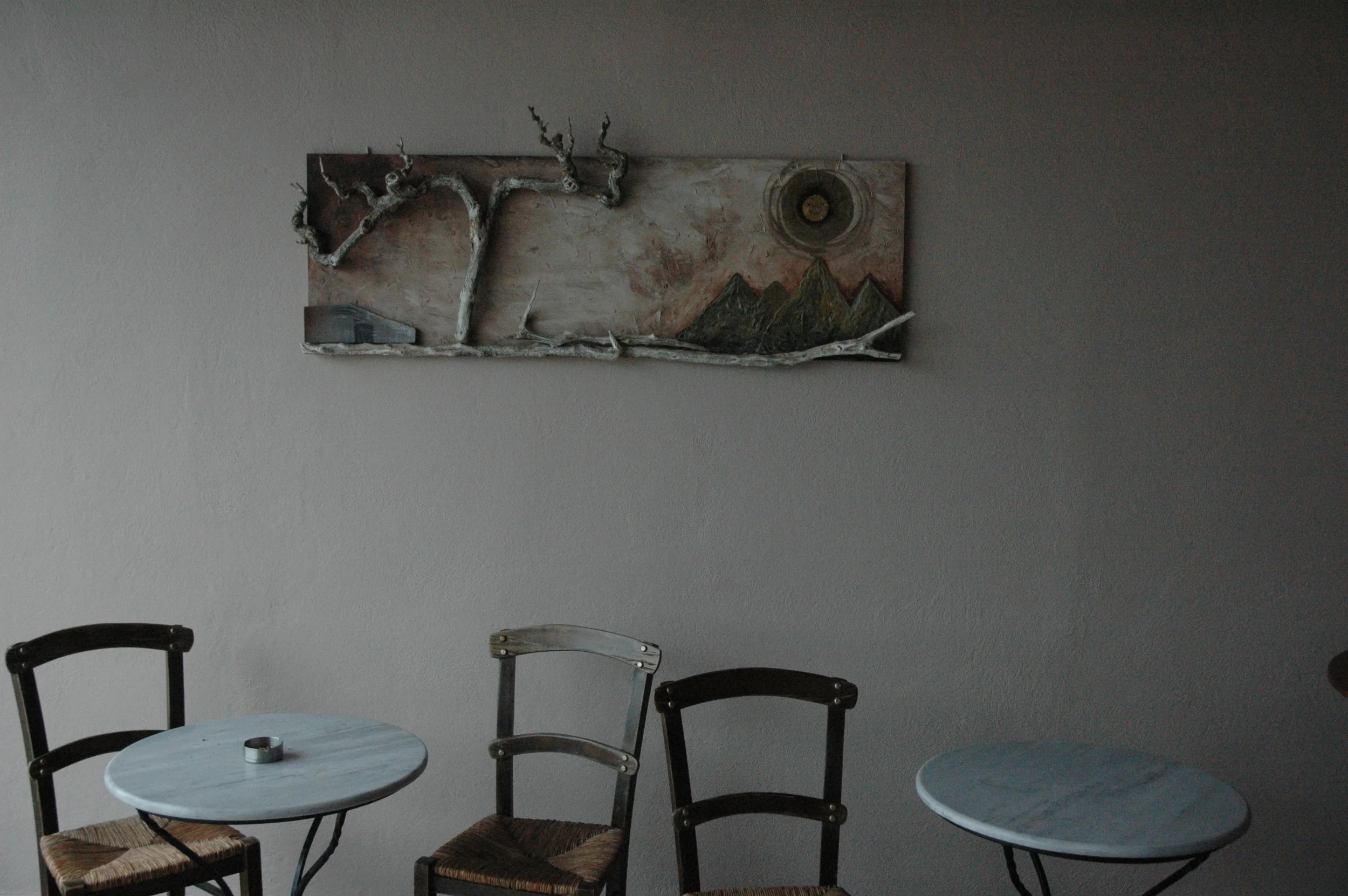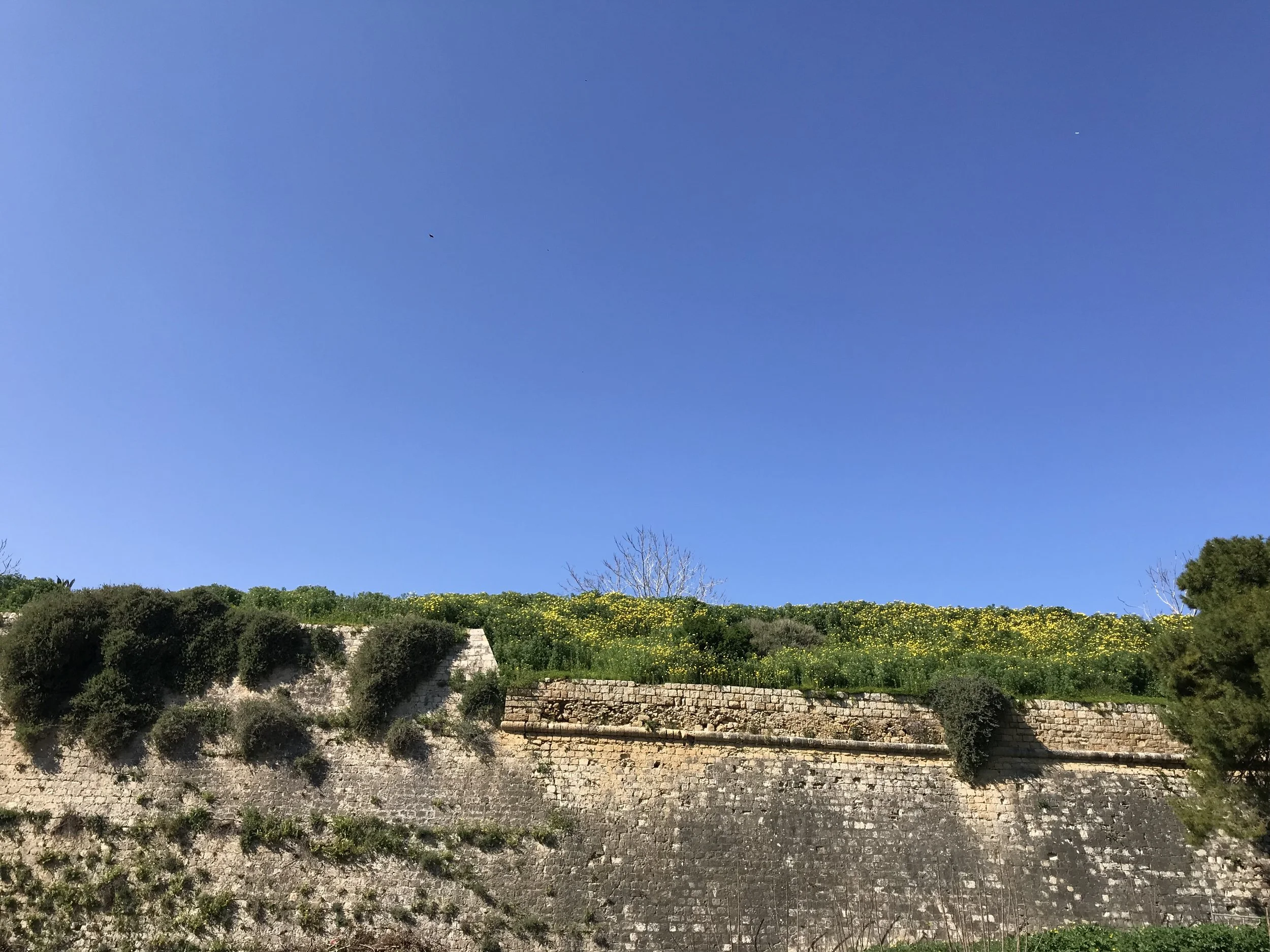A Long Line of Mix-ups in Georgia.
About a year ago there was that Laurel and Yanny meme. A low-quality recording of an ambiguous sound circulated on social media platforms because people couldn’t agree on what the sound was. Some heard “laurel” and others heard “yanny”. Based on what they heard the internet formed rivalries. Team Yanny and Team Laurel were incredulous of each other. Then audio scientists calmed down the internet and explained the scheme — that both sounds were in a single file, but depending on how sensitive our ears are to higher and lower frequencies, people would hear different things. Reality felt tenuous for several hours.
A year later, it seems a perfect analogy for learning a foreign language — especially Georgian, which people have been speaking to me for the last five weeks, and I’ve just had an impossible time undoing my aural biases. Somebody — a clerk at the supermarket, a taxi driver — says “Laurel” and I think, “Yes! Laurel!” My interlocutor looks embarrassed for me. They had said Yanny.
The other night at dinner I wanted to order a traditional Georgian appetizer called Pkhali. It’s a grassy pâté, with many delicious herbs, often decorated with pomegranate seeds and wrapped with thinly sliced eggplant. Making the sound for P and K together is one of the many acrobatics of the tongue, teeth, nose, and lips that I tumble through on a regular basis. I asked the waitress several times for p-kali and she just wasn’t following. I got sad. But then she understood and her face lit up. She asked, did I mean ფხალი? And then to me it sounded like Khali. The P was only there by telepathy. It was less a sound than a motivation. A silent intention, like how a practicer of yoga begins a class. The Kh is a glottal coughy sound from the back of the throat. I told her that was precisely what I wanted, plus a salad and enough white wine to douse my insecurities.
When I relayed these linguistic discoveries — slightly tipsy — to my Georgian friend she texted back: “Please tell me you didn’t try to order Kali.” And if I had? Well then my order would’ve been “A salad, white wine, and a woman.”
The mixups don’t end here. My parents tell me on FaceTime about how they run into people at the grocery store and need to explain that the Georgia where their son is isn’t Atlanta — but a country in central Asia, bordering the Black Sea, in the Caucasus Mountains. The complexities and slippages layer up.
The people of Caucasus are Caucasian. In America, this ambiguous word refers to white people of European heritage. The name Georgia is a lot to unpack. Georgia is an exonym, or the name used by foreigners. Its endonym, or the name the country uses for itself, is Sakartvelo. A name like Georgia has been used in the region for a long time. Christianity came to Georgia in the 4th century, and many people ascribe the name to the popularity of St. George among the people. But many scholars see this as a misinterpretation of the Persian word ğurğ (wolf). The Iranians living in this region between the Black and Caspian Seas called it the land of the wolves (“Yanny”) — and Christian theologians traveling in the same region for many centuries heard Giorgos. (“Laurel”).
Let’s do another one. The Georgian word for the earth is Dedamitsa which we can link to the Georgian word for mother — Deda. If Deda is the word for mom, what is the word for dad? Not joking, the word is mama! And there is more gender-bending fun to be had. The Georgian language doesn’t gender words or pronouns. They’re all neutered, which makes for a great time when Georgians tell you a story in English, often unintentionally slipping up their he’s and she’s (“I was talking to my dad and she said he wanted me to take out the garbage.”)
As a person with a genuine love of languages (and puns!) I don’t mean to sound glib when I say I take immense pleasure in the confusion of it all. Although sometimes these cultural mixups have painful ironies. International indexes of the safest countries often place Georgia near the top of the list. Saying this to Georgians results in variations of pride and skepticism. They will agree Georgians try to take care of each other, and crime is very low. Yet the Russo-Georgian war of 2008 is still very much a part of their cultural memory. Georgians will tell you about how they escaped to the villages in the mountains as Russia repeatedly bombed Tbilisi.
When I decided to live abroad, I thought back to a book I read by John Steinbeck called A Russian Journal — which was his account of traveling in Russia, Ukraine and Georgia in the late 1940s. He writes that Russians and Ukrainians talked about Georgia with a sort of “longing and admiration”, as a place everyone wished to travel. He tells stories about its literature, the food, and ancient wine culture. He likens it to a “second heaven.” I sat out on the balcony of my apartment, enjoying the warm climate and one of Georgia’s unique amber-colored wines. I had downloaded the audiobook and began to listen to the section about Georgia. As I listened to the narrator, my mind drifted to South Ossetia and Abkhazia in the north. I started to twist uncomfortably in my seat: “Indeed we began to believe that most Russians hope that if they live good and virtuous lives they will go not to heaven — but to Georgia when they die.”
I am very much a foreigner in a city like Tbilisi. In Greece, to a degree, because I could speak the language and because my hair and beard are dark, I could pass. People would ask me if I was Greek-American. Or at least that is how Greek hospitality went. (Speaking of mixups, in the Greek language “foreigner” and “guest” are the same word.)
It is unlikely I will ever pass as Georgian. However I am trying to appreciate the culture and bring a patience to the things I don’t understand. I’m trying to learn the history, to learn the alphabet and improve my vocabulary. I let the mixups stand on their own. About two weeks ago I bought a monograph on Georgian mythology from a sidewalk vendor. I’m going to re-tell my favorite myth from the collection:
Long ago, the Sun and the Moon used to come down to earth and live like humans. The Sun would appear as a woman, and the Moon a man. Whenever they wished, the two could walk around on the earth like you and me — a part of the community. Sometimes being part of a community means we’re at odds with others. Such was the case with the Sun, the Moon, and a widow living in town. The widow had a son, whom the Sun and Moon liked very much. They would visit with him. However his mother did not like this at all. Why do parents dislike their children’s friends?
One day, the Sun and Moon were walking through town and decided to visit their friend. The mother was milking her cow when she saw the two heavenly beings approach. She leaped up from her milking stool and in each fist took massive heaps of cow manure. She began throwing the cow shit at the Sun and the Moon. They were covered in it. The Sun rushed to the bucket of milk and cleaned herself with it. The Moon, however, ran to the sea to clean himself, but the sea was too far so the all the manure had dried and crusted onto his face and body.
The Sun and Moon rose into the sky. Now when you see the battered face of the Moon rise over the town, you might remember that conflict in the community from long ago. Or when you pour a cold glass of milk on a warm day up in the North, where words from the Megrelian language still slip in to speech. Bzha, how funny a word. Why should two things as different as Sun and Milk be called by the same name? Such a strange coincidence.





